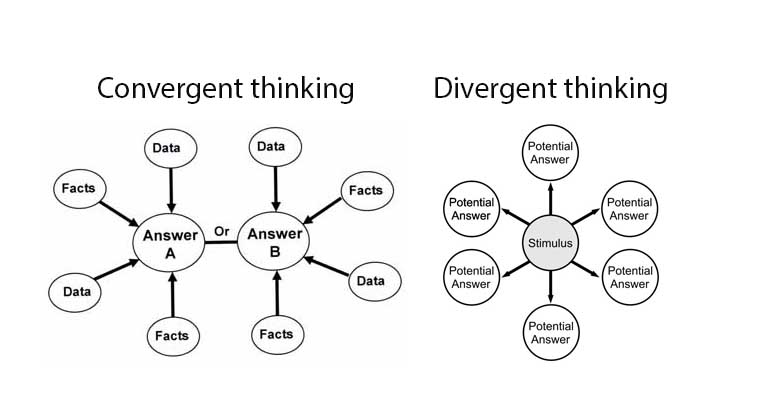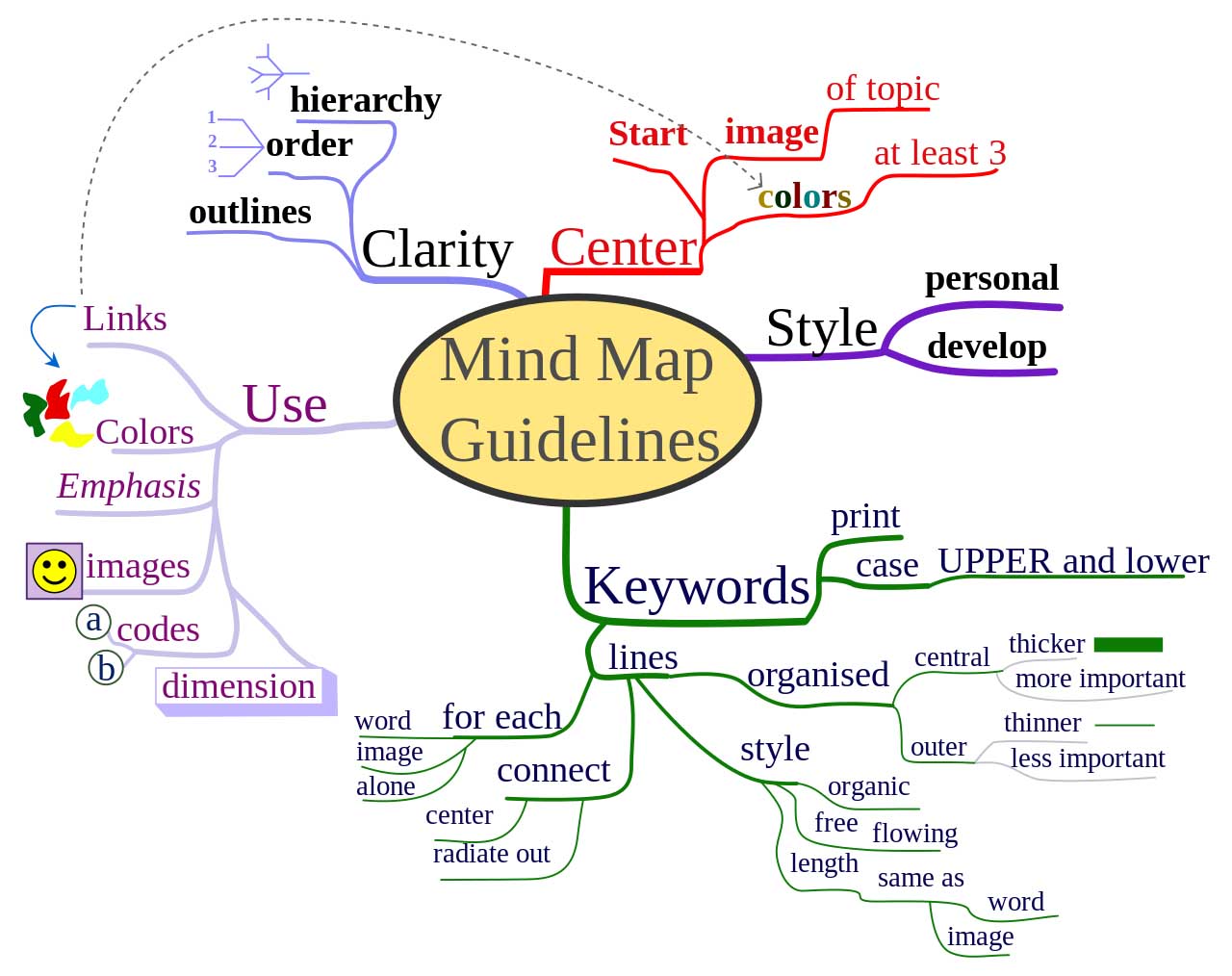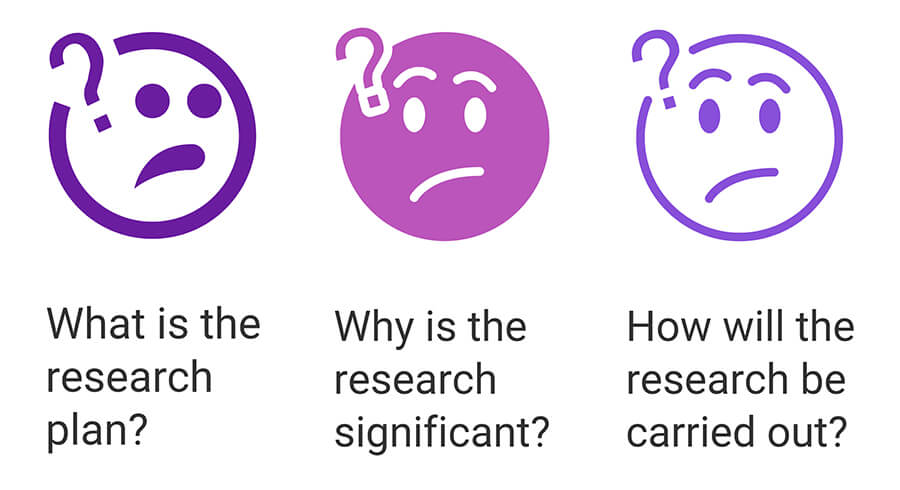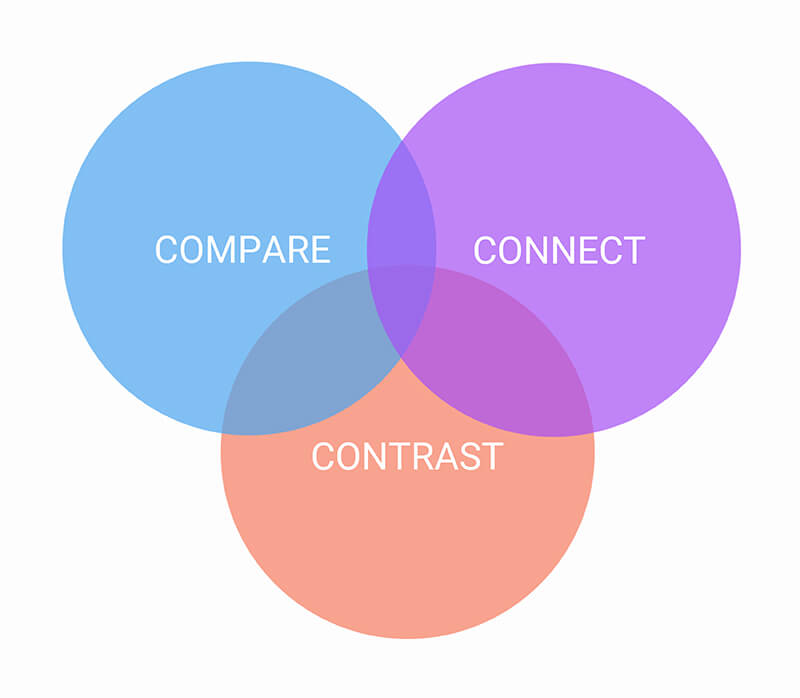Ultius Blog
What Is the Purpose of Freewriting During the Research Process?
Knowing how and where to begin writing a research paper can often be quite intimidating. For many students and professionals, freewriting is practice that helps writers overcome that pesky obstacle called writer’s block.
In this blog, we’ll talk about what exactly freewriting is, its purpose during the research process, why it’s important, how to “freewrite”, as well as some final tips for getting the most out of freewriting.
When it’s all said and done, you will be equipped with the know-how of doing your own freewriting. If you don’t have the time to learn about (or do) freewriting, we strongly recommend you read our how-to guide to learn what is speedwriting (it’s just as useful).
The purpose and importance of freewriting
What is freewriting?
Have you ever prepared for a workout by stretching, or gotten ready for a dinner party by browsing your favorite cookbook? Freewriting is a similar process. It’s essentially a way of preparing to write a research paper. During freewriting, one writes continuously for a certain amount of time without editing or analyzing what comes out. Peter Elbrow originally created the technique (also known as loop writing) during the 1970s as a means to overcome writer’s block and help one’s ideas flow easily onto paper.
Freewriting is a technique developed by Peter Elbow that helps you achieve a state of controlled creativity by jotting down ideas on paper and then connecting those ideas (much like a mind map).
Writers in many different fields use freewriting as a strategy to improve their writing efficiency and overcome blocks. For instance, nurses may use freewriting to write reports, research papers, evaluate experiments, or map ideas for clinical improvement plans.
Either way, freewriting stimulates the part of your brain that is involved with divergent thinking, or thinking related to creative problem solving and ideas outside of the topic you are focused on.
Divergent thinking is a useful exercise for the freewriting process because it stimulates creativity.
Psychologists may use freewriting to clarify thoughts and feelings. Additionally, poets and artists often use freewriting as the first step in making their ideas tangible. Whatever your field of study, freewriting is an excellent tool that can assist professional and scholarly research.
What’s the purpose of freewriting?
This strategy of allowing ideas to continuously flow onto the paper without editing or analyzing theme is especially helpful when conducting a large amount of research. For instance, if you’re conducting a research project on current communication barriers and issues in current nursing practice (click here to read a sample nursing paper), you may have read up to ten or fifteen articles about communication and nursing.
But, after reading these articles, what’s the next step? This is where freewriting comes in.
During the process, you’ll allow yourself to write for, let’s say, 15 minutes, without stopping. During that time you’ll write down everything that comes to mind about what you’ve just read. The result is a stream of ideas and thoughts you’ve gathered from your research, that you can evaluate and organize later. The purpose is simply to put your thoughts down on paper about what you’ve just read.
After you have conducted your research, give yourself 15 minutes to jot down notes and ideas that come into your head. Don’t worry about organization or handwriting (just make sure it’s legible).
Finally, freewriting is important because the good ideas you will get will result an a final paper or essay that stands out from the crowd (because of your original thinking).
Freewriting as a form of mind mapping
Freewriting, therefore, is a kind of mind mapping, where you are allowed to visualize and brainstorm without thinking about order, structure, and the formalities of completed work.
Going through the process of freewriting and mind mapping will allow you to better organize your thoughts later during the research process.
Why is Freewriting Important?
Nothing’s more discouraging as a student, or a professional writer, than staring at a blank screen, searching for the right words. Many writers struggle with writer’s block. If you can identify, you’re not alone, and freewriting is an effective way to overcome writer’s block (like choosing to use paper writing services from Ultius). It basically works by separating our writing process from our internal “critic,” so that we can write without over-analyzing our ideas, (which otherwise stops the writing flow).
Here are some other ways freewriting can assist the research process:
| 1 | Synthesis: Assists in synthesizing ideas from research |
| 2 | Themes: Helps the writer later identify common themes found through research |
| 3 | Learning: Solidifies the learners’ understanding and memory of what was read |
| 4 | Mapping: Creates a flow of ideas that can contribute to a research map or outline |
| 5 | Idea Flow: Helps overcome writer’s block |
Besides being beneficial for your final written product, freewriting during research is a tactic that great writers use. Forgetting to freewrite during the research process is a mistake that professional essay writers never make.
When to use freewriting as part of your research process
Getting your ideas onto paper by letting them flow in a free-form method (freewriting) can be particularly helpful if you’re writing an exceptionally lengthy research paper (or an entire dissertation), or embarking on an extensive research project.
It doesn’t matter what step you are in during the research process, freewriting can always help.
Carrying out a research process can be tricky, especially if the paper is longer.
Stuck with research? Consider buying your research proposal from an expert writer.
The more extensive and in-depth a project is, often the more difficult it can be to extract the topics and themes you’d like to write about, let alone organize and synthesize those ideas into an outline. In cases like this, freewriting acts as a catalyst to transfer your mental ideas to paper (or Google Docs) so that you can see and rearrange them later in a way that makes sense to you.
Freewriting can also be incredibly beneficial if you’re having trouble understanding how different components of research relate to one another. Through the free-flow process, you’ll end up jotting down ideas that may seem unrelated at first. But, when you go back and re-read your freewriting, you’ll be able to more easily identify common themes.
Finally, freewriting can even be helpful when you’re further along in the research process. For instance, if you’ve already created an outline (see an example of an outline) but you’re struggling to “fill in the blanks,” so to speak, by writing the actual paragraphs of your paper, start by freewriting.
Simply freewrite any paragraph of the outline you’re struggling with, using the subtopic of the outline as your thought trigger and flow-writing guide. This will also help you overcome writer’s block. When you’re done, you’ll be able to go back and organize your freewriting into a paragraph that makes sense by omitting what doesn’t belong. Next, you’ll be able to edit and restructure what relates.
How to freewrite during the research process
Like any anything, the more one practices freewriting, the easier it becomes. The chart below outlines a basic step-by-step process, to get you started:
| 1 | Gather research: First, complete the process of reading your research articles. You may want to jot down notes on things that stand out to you as you read. |
| 2 | Clear your mind: Step away from your research for five minutes. Allow your mind to wander. At this point, you’re creating a blank slate for yourself to freely write. |
| 3 | Remember your theme: Get clear and remember on your theme or topic of research. This will be the only guide in your freewriting process. |
| 4 | 1, 2, 3…write! Set a timer for 10 or 15 minutes and begin writing everything that comes to mind, no matter how crazy it sounds. Don’t second-guess it. |
| 5 | Keep your hand moving! This is the only rule (and the biggest perk) of freewriting. Don’t stop writing! |
| 6 | Say goodbye to your critic: Don’t edit for spelling or analyze your ideas. You can come back and do that later. |
| 7 | Finding what pops: After your time’s up, use a highlighter to mark common themes and ideas that stand out. |
| 8 | Building your map: Next, start plugging the themes you found from your freewriting into a research outline or map. |
| 9 | Find your own flow: Everyone’s freewriting process will look different. For some, it may consist of idea bullet points that continuously flow. For others, it may be paragraphs. The important thing is to keep writing as ideas come to mind. |
| 10 | No thinking allowed: Remember, when you’re freewriting, don’t think; just write! |
Keeping your hand moving (or your fingers typing), as mentioned in step five, is usually the most difficult step. However, it’s also the most important part, since it’s crucial in order to overcome writer’s block.
If you’re struggling to keep writing, think back to the thoughts that flooded your mind as you were reading your research. Even if you repeat a word or phrase, or write something that seems altogether unrelated to your research, that’s ok.
The purpose of freewriting isn’t to produce an organized discussion. Rather, it’s to subconsciously (and consciously) train your mind and hands to keep moving together to produce a free flow of ideas. The objective of freewriting is to remove any blocks (like fear and self-criticism) that inhibit the writing or research process.
Examples of freewriting (what it looks like)
Sometimes it’s helpful to see examples before starting a new process. If you’ve never freewritten before, seeing writing examples can provide a sense of permission and clarity about what freewriting may look like, which helps overcome self-doubt and fear, both of which hinder your free-flowing process.
The length of your freewriting will usually vary depending on how long you allow yourself to freewrite for. If you do a five-minute freewriting session, you may only have a paragraph or two of writing. If you freewrite for 15 or 20 minutes, you may have a few pages, depending on how fast you write.
There is no right or wrong length to freewriting. When you’re starting out, it’s sometimes easier to start with shorter freewriting sessions, which are generally less intimidating.
If you complete a short freewriting session, you’ll likely feel a sense of accomplishment. This will give you more confidence to embark on a longer session the next time. The longer you allow yourself to free write for, the more ideas that will likely emerge from the process.
Here’s a sample of what freewriting may look like, based on reading three research articles related to professional communication issues in nursing practice. Remember, in freewriting, nothing is edited, so it’s ok if there’s spelling and grammatical errors, or incomplete sentences in this stage of the process.
Freewriting session on communication in nursing research:
“Nurses feel silenced. Ethical challenges result from communication issues, some nurses don’t feel heard…patients need good communication to feel cared for…. Care communication care communication is essential to quality care, it’s important for everyone involved to understand what good communication means and its value. It’s also critical for ethical issues to be understood… patients need to be heard, it’s important to think about confidentiality so that communicating doesn’t breach bpra privacy patient privacy…. Education can help nurses communicate better. It’s not just nurses who need to be educated. It’s also patients and all stakeholders like administrators. A lot of studies have been done that have found better communication helps hospitals be more productive and efficient and have higher ratings. Nurses need to feel heard and appreciated to do their best work.”
References
1. Kourkouta, L., & Papathanasiou, I. V. (2014). Communication in Nursing Practice. Materia Socio-Medica, 26(1), 65–67. http://doi.org/10.5455/msm.2014.26.65-67
2. Norouzinia, R., Aghabarari, M., Shiri, M., Karimi, M., & Samami, E. (2016). Communication Barriers Perceived by Nurses and Patients. Global Journal of Health Science, 8(6), 65–74. http://doi.org/10.5539/gjhs.v8n6p65
3. Rushton, C. H., & Stutzer, K. (2015). Addressing 21st Century Nursing Ethics: Implications for Critical Care Nurses. AACN Advanced Critical Care, 26(2), 173–176. http://doi.org/10.1097/NCI.0000000000000083
As the example above shows, don’t worry about spelling, grammar, or structure. Just get the ideas out.
Bringing it all together—freewriting, research, outline, then writing
Now that you have seen what freewriting looks like, what’s next? Now it’s time to bring it all together by narrowing your important ideas down and moving them to your outline. The goal is, after all, to use freewriting to help with your research process.
It’s a good point to remember that not all of your freewriting thoughts are going to be useful for the next steps. That’s perfectly OK.
By following the steps provided in the brainstorming infographic, you will be well on your way to mastering the difficult research portion of your project. Additionally, when you are done with it you will clearly know what the purpose of freewriting is during the research process, and why it’s essential to do it.
Final tips on your freewriting experience before/after the research process
The above how-to steps of freewriting provide a great foundation for any writer looking to use freewriting to speed, improve, and clarify their research process. But, there are also a few extra tips that can help you get the most out of your freewriting process.
Check out the checklist below to maximize your success:
- 1. Define your topic: Having a clear vision of your research topic will not only guide you in reading the most related empirical articles, but it will also guide your freewriting process, so that the ideas naturally flowing from your mind onto the paper, connecting what you’ve read to your topic.
- 2. Notice what stands out: If you’re having trouble keeping your pen moving (or your fingers typing) during your timed freewriting session, keep directing your thoughts to what stood out to you from the research you conducted—even if you have to repeat ideas, that’s ok! Remember, the idea is to keep writing.
- 3. Let go of your critic: When it comes to writing, we all have a critic. And it’s important to remember that there’s a time and place for that critic (like when we’re proof reading our final draft). However, the critic is not our friend while we’re conducting the freewriting/research process, trying to overcome writer’s block. So, say goodbye to your internal critic. Don’t analyze. Just let your ideas flow, uninhibited.
- 4. Practice, practice, practice! Remember, it’s not always easy the first time, so if freewriting seems unnatural, or awkward, it’s ok. But, the more you do it, the more comfortable you’ll become with it. Plus, the more you’ll develop your own method that works most efficiently for you. Don’t worry if it’s not “perfect” the first time.
Finally, don’t be afraid to ask for help. Great writers all learn and gain inspiration from mentors, peers and instructors, at some point. If you’re feeling stuck and unsure of what steps to take next, help is as easy as a call, email, or text away. Ultius can help you with the freewriting process through our writing or editing services (by connecting you with a writer).
Thanks for reading and good luck!
- MLA Style
- APA Style
- Chicago Style
- Turabian
Ultius, Inc. "What Is the Purpose of Freewriting During the Research Process?." Ultius | Custom Writing and Editing Services. Ultius Blog, 02 Nov. 2018. https://www.ultius.com/ultius-blog/entry/what-is-the-purpose-of-freewriting-during-the-research-process.html
Copied to clipboard
Click here for more help with MLA citations.
Ultius, Inc. (2018, November 02). What Is the Purpose of Freewriting During the Research Process?. Retrieved from Ultius | Custom Writing and Editing Services, https://www.ultius.com/ultius-blog/entry/what-is-the-purpose-of-freewriting-during-the-research-process.html
Copied to clipboard
Click here for more help with APA citations.
Ultius, Inc. "What Is the Purpose of Freewriting During the Research Process?." Ultius | Custom Writing and Editing Services. November 02, 2018 https://www.ultius.com/ultius-blog/entry/what-is-the-purpose-of-freewriting-during-the-research-process.html.
Copied to clipboard
Click here for more help with CMS citations.
Ultius, Inc. "What Is the Purpose of Freewriting During the Research Process?." Ultius | Custom Writing and Editing Services. November 02, 2018 https://www.ultius.com/ultius-blog/entry/what-is-the-purpose-of-freewriting-during-the-research-process.html.
Copied to clipboard
Click here for more help with Turabian citations.








